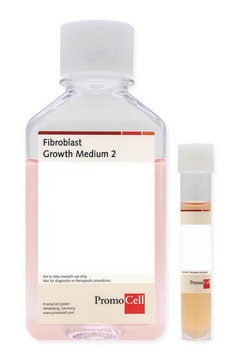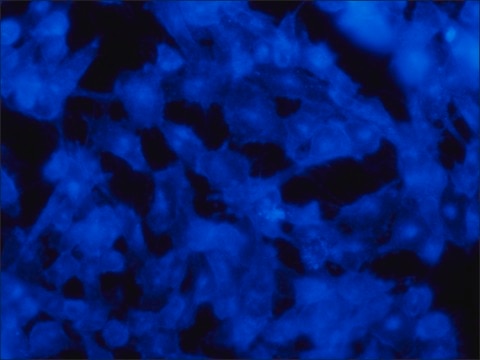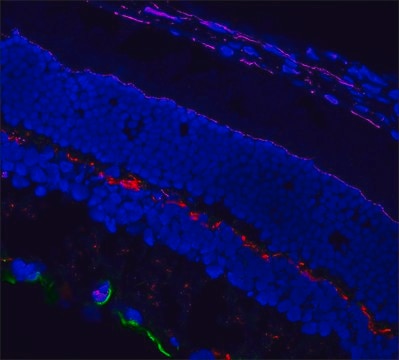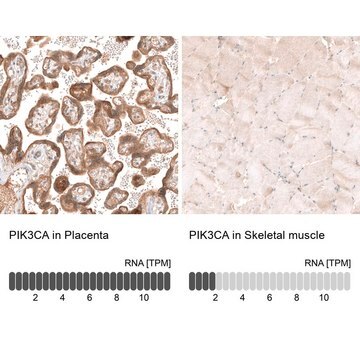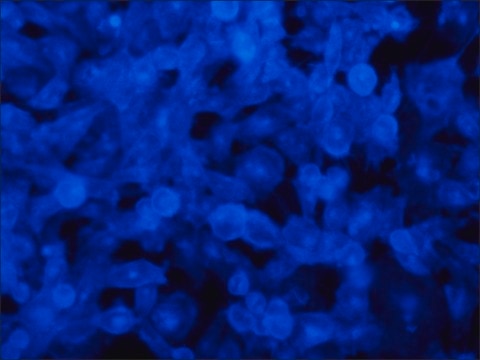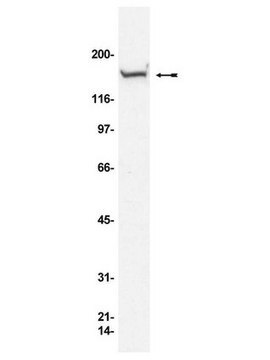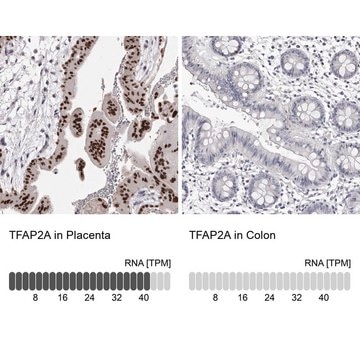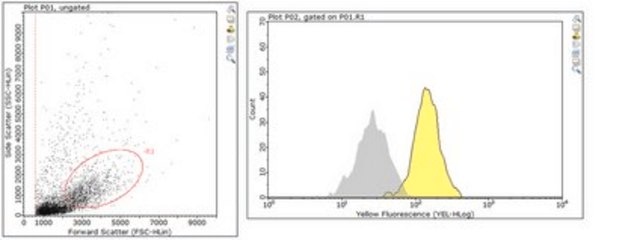07-1781
Anti-RAD50 Antibody
from rabbit, purified by affinity chromatography
Synonym(s):
RAD50 (S. cerevisiae) homolog, RAD50 homolog, RAD50 homolog (S. cerevisiae)
About This Item
Recommended Products
biological source
rabbit
Quality Level
antibody form
affinity isolated antibody
antibody product type
primary antibodies
clone
polyclonal
purified by
affinity chromatography
species reactivity
human
species reactivity (predicted by homology)
rat, mouse
technique(s)
immunocytochemistry: suitable
western blot: suitable
NCBI accession no.
UniProt accession no.
shipped in
wet ice
target post-translational modification
unmodified
Gene Information
human ... RAD50(10111)
mouse ... Rad50(19360)
General description
Specificity
Immunogen
Application
A 1:500 dilution of this antibody was used to detect RAD50 on HeLa and A431 cells.
Epigenetics & Nuclear Function
Transcription Factors
Quality
A 1:500 dilution of this antibody was used to detect RAD50 on human spleen lysate.
Target description
Physical form
Storage and Stability
To reconstitute the antibody, centrifuge the antibody at a moderate speed (5,000 rpm) for 5 minutes. Carefully remove the ammonium sulfate/PBS buffer solution and discard; 10μL of residual ammonium sulfate solution will not affect the re-suspension of the antibody. Do not let the protein pellet dry, as severe loss of antibody reactivity can occur. Re-suspend the antibody pellet in 100L either standard PBS or TBS (pH 7.3-7.5). DO NOT VORTEX. Mix by gentle stirring with a wide pipet tip or gentle finger-tapping. Let the precipitated antibody rehydrate for 1 hour at 4-25°C prior to use. Small particles of precipitated antibody that fail to re-suspend are normal. Vials are overfilled to compensate for any losses.
Analysis Note
Human spleen lysate.
Disclaimer
Not finding the right product?
Try our Product Selector Tool.
wgk_germany
WGK 2
flash_point_f
Not applicable
flash_point_c
Not applicable
Certificates of Analysis (COA)
Search for Certificates of Analysis (COA) by entering the products Lot/Batch Number. Lot and Batch Numbers can be found on a product’s label following the words ‘Lot’ or ‘Batch’.
Already Own This Product?
Find documentation for the products that you have recently purchased in the Document Library.
Our team of scientists has experience in all areas of research including Life Science, Material Science, Chemical Synthesis, Chromatography, Analytical and many others.
Contact Technical Service